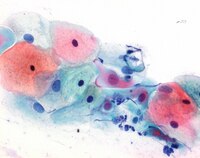109254 Sigma-Aldrich巴氏液1b蘇木精溶液S
Recommended Products
Overview
| Replacement Information |
|---|
Products
| Catalogue Number | Packaging | Qty/Pack | |
|---|---|---|---|
| 1.09254.0500 | 塑膠瓶 | 500 ml | |
| 1.09254.2500 | 塑膠瓶 | 2.5 l |
| References |
|---|
| Product Information | |
|---|---|
| HS Code | 3212 90 90 |
| Quality Level | MQ400 |
| Applications | |
|---|---|
| Application | for cytology |
| Biological Information |
|---|
| Physicochemical Information | |
|---|---|
| Density | 1.05 g/cm3 (20 °C) |
| pH value | 2.5 (H₂O, 20 °C) |
| Dimensions |
|---|
| Materials Information |
|---|
| Toxicological Information |
|---|
| Safety Information | |
|---|---|
| Categories of danger | harmful |
| Product Usage Statements |
|---|
| Storage and Shipping Information | |
|---|---|
| Storage | Store at +15°C to +25°C. |
| Packaging Information |
|---|
| Transport Information |
|---|
| Supplemental Information |
|---|
| Specifications | |
|---|---|
| Suitability for microscopy (Vaginal smear) | passes test |
| Nuclei | blue to dark violet |
| Cyanophilic Cytoplasm (basophilic) | blue-green |
| Eosinophilic Cytoplasm (acidophilic) | pink |
| Global Trade Item Number | |
|---|---|
| Catalogue Number | GTIN |
| 1.09254.0500 | 04022536112510 |
| 1.09254.2500 | 04022536112534 |
Documentation
巴氏液1b蘇木精溶液S MSDS
| Title |
|---|
巴氏液1b蘇木精溶液S Certificates of Analysis
| Product Number | Packaging | Specification | Lot Number |
|---|---|---|---|
| 1.09254.0500 | 塑膠瓶 | PDF Specification Document | |
| 1.09254.2500 | 塑膠瓶 | PDF Specification Document |
User Guides
| Title |
|---|
| User Guide 109254 |









